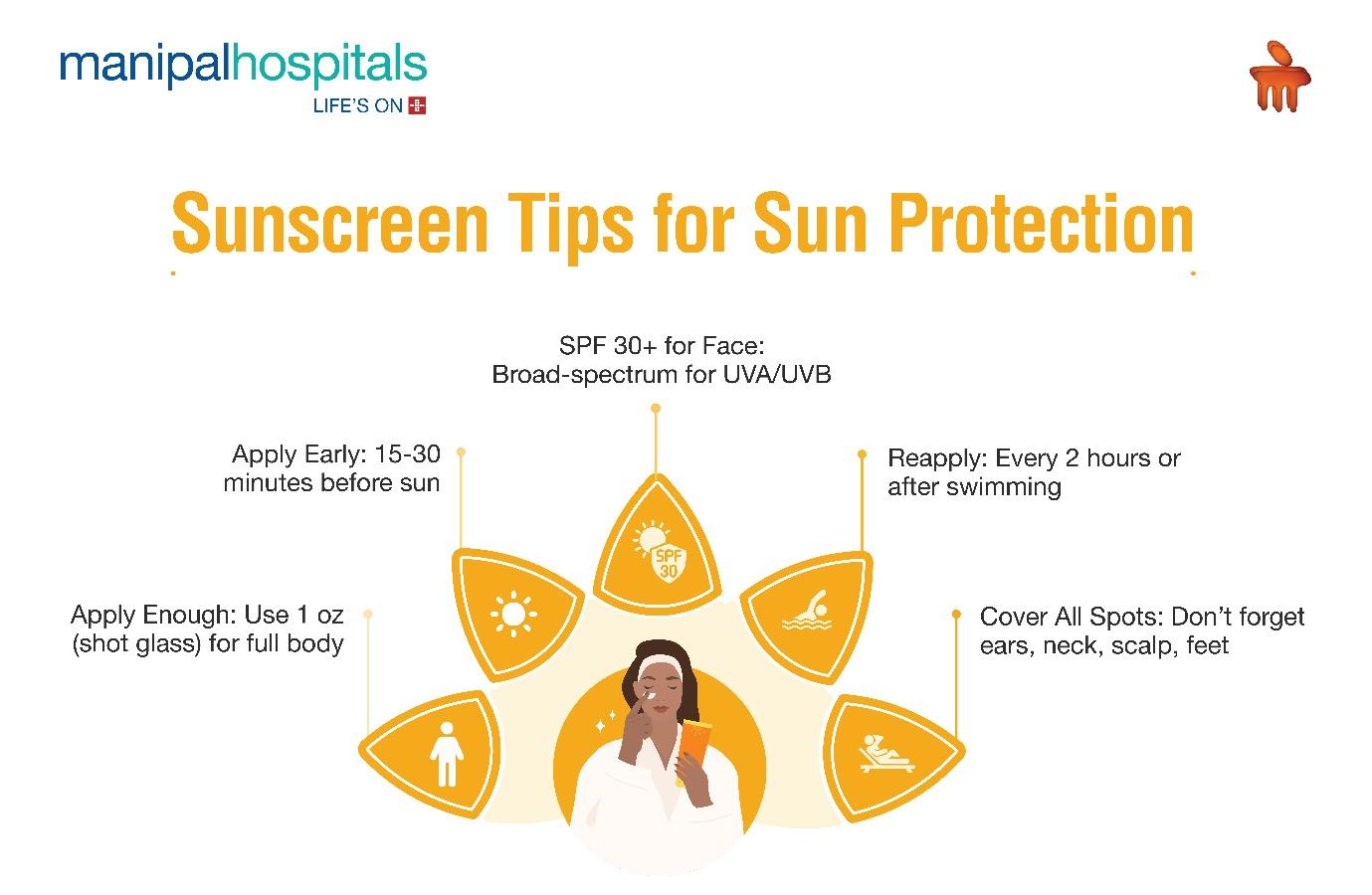
Imagine stepping outside on a sunny day without any skin protection. The sun’s rays, though warm and inviting, can cause serious damage to your skin. Excessive exposure to the sun can lead to sunburn, premature ageing, and an increased risk of skin cancer. Sunscreen is a simple yet powerful tool to shield our skin from harmful ultraviolet (UV) rays. Applying sunscreen to your face is a crucial step in any skincare routine, providing daily protection against UV damage, premature ageing, and sun-related skin issues. Let’s dive into how to use sunscreen effectively to keep your skin safe and healthy.
Synopsis
What are UV Rays?
The sun emits two primary types of ultraviolet (UV) rays:
UVA Rays: These penetrate deeply into the skin, contributing to ageing and wrinkles.
UVB Rays: These cause sunburn and are more closely linked to skin cancer.
Both types can damage your skin cells, making sunscreen an essential step in sun protection.
What is Sunscreen and How Does It Work?
Sunscreen is a skincare product designed to absorb or reflect UV radiation. The sunlight cream prevents the rays from penetrating the skin. It’s available in various forms, including lotions, creams, gels, and sprays, making it accessible to everyone.

Key Factors to Consider
This measures how long you can remain in the sun without getting sunburned. For example, SPF 30 allows you to stay protected 30 or more times longer than without sunscreen. Sun cream SPF 30 or higher is generally recommended for effective protection.
Broad-Spectrum Protection
Broad-spectrum protection shields your skin from both UBA and UVB rays. When choosing sunscreen, it’s important to select a broad-spectrum formula. This protects the skin from harmful rays by blocking them and ensures you’re safeguarded from both the ageing and burning effects of the sun.
Water-Resistant vs. Waterproof
Water-resistant sunscreens last longer in water or sweat but still need reapplication. There is no such thing as a fully “waterproof” sunscreen, so it’s essential to reapply after swimming or heavy sweating.
How to Apply Sunscreen on the Face?
Choose a sunscreen with the best SPF for face and apply sunscreen generously to your face by dotting small amounts on your forehead, cheeks, nose, and chin, then gently spread it in outward, circular motions to ensure even coverage. Don’t forget areas like the ears and neck!
Sunscreen Tips for Effective Sun Protection:
-
Apply Generously: Use about a shot glass amount (1 oz) to cover your entire body.
-
Time It Right: Apply sunscreen at least 15-30 minutes before going outside to allow it to absorb into the skin.
-
Sunscreen for Face: Choose a broad-spectrum sunscreen for the face with at least SPF 30 to shield your skin from both UVA and UVB rays effectively.
-
Reapplying: If you’re swimming or sweating heavily, consider reapplying sunscreen every two hours, or more frequently.
-
Be mindful of the Often-Missed Spots: Pay attention to areas like the ears, neck, scalp, and feet while in the sun exposure.
Consult our dermatologist in Goa to get a clear understanding of how to apply sunscreen on face.
How to Choose the Right Sunscreen?
Skin Type:
To protect your skin, it’s important to know your skin type. Listed below are the types of skin and sunscreens (Eg: Sun cream SPF 50) recommended for each:
-
Oily Skin: Choose a lightweight, oil-free formula sunscreen for oily skin.
-
Dry Skin: Moisturizing sunscreen for dry skin with hydrating ingredients is best for dry skin.
-
Sensitive Skin: Look for hypoallergenic or fragrance-free options for the sensitive skin type.
Chemical vs. Physical Sunscreen
-
Chemical Sunscreen: Absorbs into the skin and filters UV rays. Lightweight and invisible, suitable for everyday use.
-
Physical Sunscreen: Contains minerals like zinc oxide that reflect UV rays. It’s gentler, making it ideal for sensitive skin but may feel heavier.
Additional Sun Protection Tips:
-
Seek Shade: Avoid direct sun exposure, especially in the peak sun hours., when UV rays are strongest. Shade is a simple way to minimize your sun exposure.
-
Protective Clothing: Wear wide-brimmed hats, sunglasses, and UV-protective clothing while on the beach or during peak sun hours. These add extra layers of protection, especially if you’re spending extended time outdoors.
-
Healthy Lifestyle Habits: Hydration and a balanced diet rich in vitamins C and E help keep your skin healthy and resilient against sun damage. Antioxidant-rich foods like berries, nuts, and leafy greens further support skin health.
Conclusion
The use of sunscreen is a crucial part of protecting your skin against UV rays. Sunscreen should be chosen carefully, applied correctly, and reapplied as necessary. It is possible to maintain healthy, protected skin by following a daily routine. Wearing protective clothing and seeking shade are also recommended in combination with it.
Encourage others to practice sun safety and share this guide to help more people enjoy the sun without compromising their skin health. For more information, please visit the Dermatology Department at Manipal Hospitals, Goa.
FAQ's
Sunscreen helps reduce the risk of sunburn, but it doesn't completely prevent tanning
While you don't need sunscreen indoors, it's still a good practice to apply it on sunny days, especially if you're near windows.
Aim to use about one ounce (a shot glass full) of sunscreen to cover your entire body. Follow 3 finger-rule for face and neck.
Yes, it's recommended to use sunscreen daily, especially if you spend a lot of time outdoors.
Yes, you can use sunscreen during pregnancy. In fact, it's important to protect your skin from the sun's harmful rays. Choose a broad-spectrum sunscreen with an SPF of 30 or higher.
Yes, you can use sunscreen on children. However, it's important to choose a sunscreen that is specifically formulated for children and is gentle on their skin.



















 5 Min Read
5 Min Read










